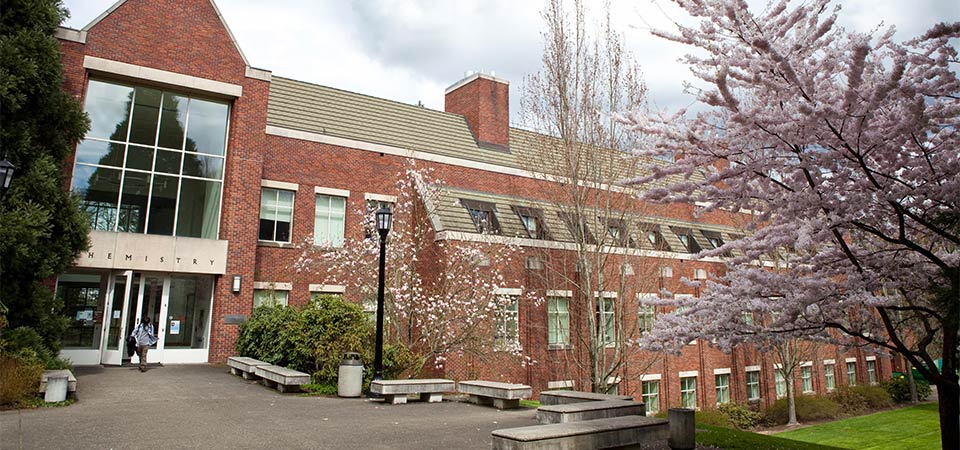Reed College offers Bachelor of Arts degrees in chemistry, biochemistry and molecular biology, and chemistry-environmental studies. Reed students can also study chemical engineering by combining studies at Reed with studies at another institution (see Dual Degree Program).
Chemistry is unique among the sciences in that it studies interactions between matter and energy at the atomic level. Why focus on atoms? Consider this - all of the matter that we see around us, a bird, a rock, or a computer screen, is made entirely out of atoms, yet there are only 80 or 90 kinds of atoms. How can such a small set of atomic building blocks produce so many different kinds of matter? The answer lies in the combining power of atoms. Putting atoms together in different combinations and arrangements creates different kinds of matter. This makes chemistry, which is the study of the "what, how, and why" of atom combination, an essential tool for understanding the natural world.
The Reed chemistry program is designed to give students a broad, yet deep, understanding of chemical phenomena. Most courses, beginning with Chem 101 (Molecular Structure and Properties) include substantial laboratory work in order to give students first-hand experience with these phenomena, and to teach experimental skills used by practicing chemists.
An increasingly important aspect of laboratory work is learning to use scientific instrumentation. Reed students learn to use a broad array of instruments, including a gas chromatograph-mass spectrometer (GC-MS), Fourier transform IR spectrometers (FT-IR), a superconducting 400 MHz Fourier transform NMR spectrometer (FT-NMR), an x-ray diffractometer, and a 250-kilowatt nuclear reactor. Another important aspect of laboratory work is learning to interpret experimental data, and students learn to use molecular modeling programs to create conceptual models that assist with data analysis.
The Reed chemistry program culminates in the senior year with the senior thesis, a two-semester research investigation of an unexplored area of scientific interest. The thesis investigation is typically conducted as a collaboration between the student and a faculty mentor.
The senior thesis is required of all Reed students, and is undoubtedly the most distinctive feature of a Reed College education. Students and faculty are drawn to Reed because they are seekers. They are excited about science. They are naturally inclined to ask questions, and they are inspired by the challenges that one encounters while doing original scientific research. Senior thesis projects provide an exceptional opportunity to integrate all that one has learned, target it on the unknown, and make a lasting contribution to scientific knowledge. The commonplace of tomorrow is being created in Reed's laboratories today.
More information:
- Facts about Reed (compiled by Reed's Office of Institutional Research)
- "Why I Studied Chemistry" (reprinted from C&E News, the weekly news journal of the American Chemical Society)
